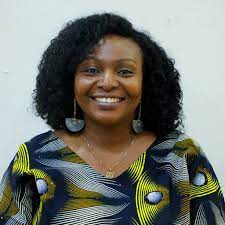
The West Africa Civil Society Institute (WACSI) has trained representatives of 20 Nigerian civil society organisations on Civic Space Protection and Regulatory Compliance. The training which was held in Abuja from February 26 to March 1, 2024, was the first of the four-pillar capacity-strengthening initiatives of the West Africa Civic Space Resource Hub (CSR-Hub).
The other three pillars are Leadership and organizational governance, Resource mobilization and financial resilience, and Digital security and protection. The 20 Nigerian participants who represented different organisations join a larger pool of 154 others from Ghana, Senegal, and Nigeria who have also received training under the initiative.
Media Rights Agenda’s (MRA) Deputy Executive Director, Mr. Ayode Longe, participated in the workshop.
Mr. Oluseyi B. Oyebisi, Executive Director of Nigeria Network of NGOs (NNNGO) facilitated most of the sessions which comprised of presentations, discussions, and group works.
The import of this first pillar was to encourage civil society organisations to identify and comply with all the legal, regulatory, and policy frameworks that govern the civil society operations as they may be called to account by donors or government agencies at any time.
Mr. Oyebisi narrated how an international Foundation listed NNNGO as a fake civil society organisation in Nigeria and by just going through the organiation’s website, he downloaded materials which he shared with the Foundation that prove that NNNGO is not fake and the Foundation apologized for miscategorising NNNGO as a fake civil society organisation.
Mr. Oyebisi also took participants through Fundamental Freedoms and Civic Space, he listed some fundamental freedoms, including freedom of assembly, association, and expression. His presentation also included legally mandated exceptions and conditions to these rights.
On regulatory compliance by civil society organisations, he listed the regulatory agencies that NGOs need to register with and which monitor their various operations. These include the Corporate Affairs Commission (CAC), Federal Inland Revenue Service (FIRS), States Inland Revenue Service, EFCC/SCUML, and the Nigeria Data Protection Commission.
Mrs. Ibinabor Mary Amachree, Assistant Commander at EFCC and Head, Strategic Analysis, SCUML, also delivered a presentation titled “Anti-Money Laundering (AML) and Countering of Terrorism Financing (CFT) Laws and Nonprofit Operations in Nigeria.” She said her department works on combating money laundry routed through NGOs and humanitarian groups as they are very vulnerable channels for this.
Other sessions on which participants were trained during the workshop are Personal data and digital technologies; Civic space advocacy and best practices; Running a nonprofit in Nigeria obligations to Department of Social Welfare; Nonprofits and Taxes; Data protection laws and the nonprofit sector; and Corporate Governance within the nonprofit sector, among others.
Participants left the meeting with a resolve to identify and work towards meeting and complying with all the necessary regulatory frameworks guiding the operations of CSOs including peer review frameworks.





